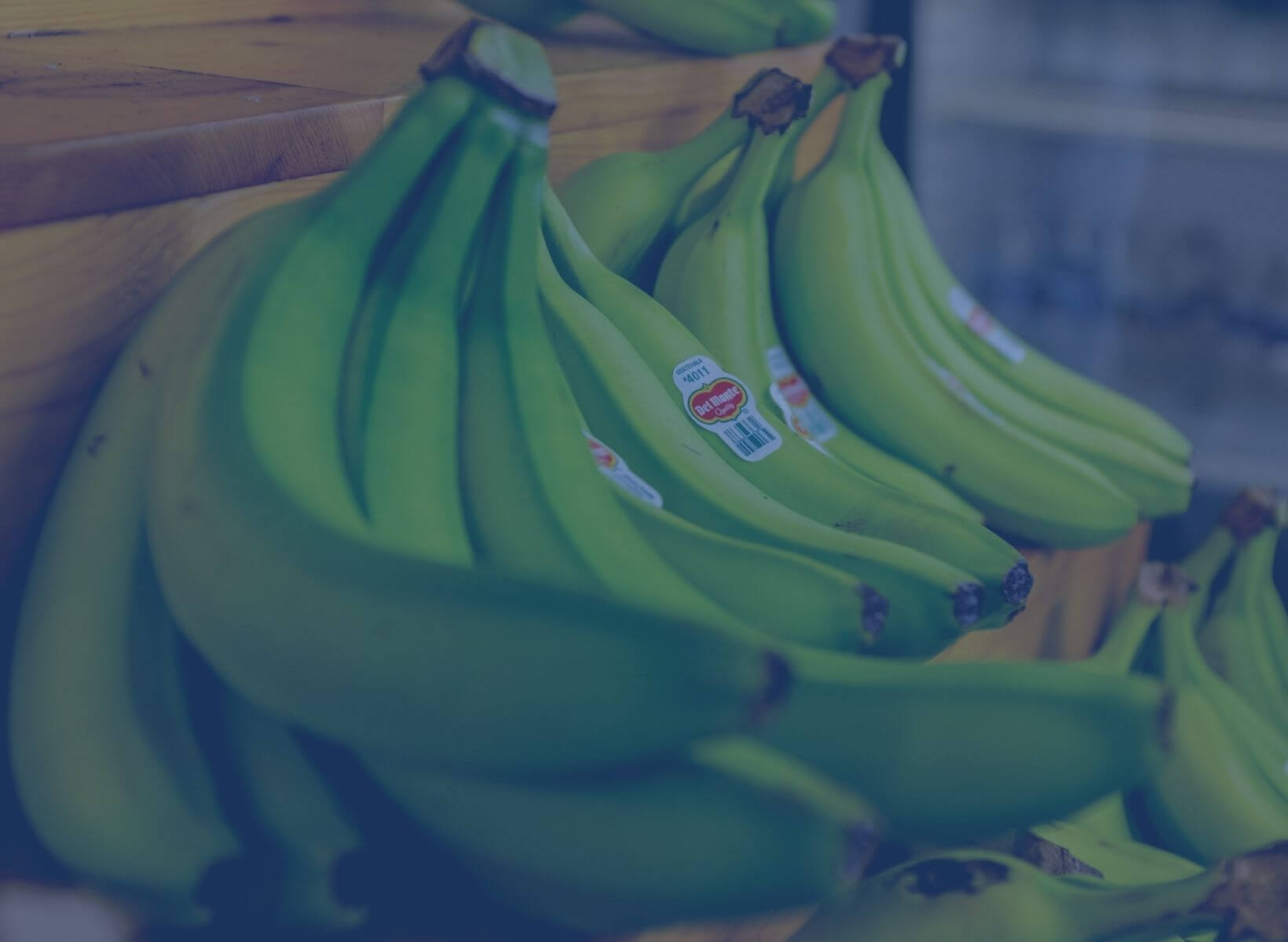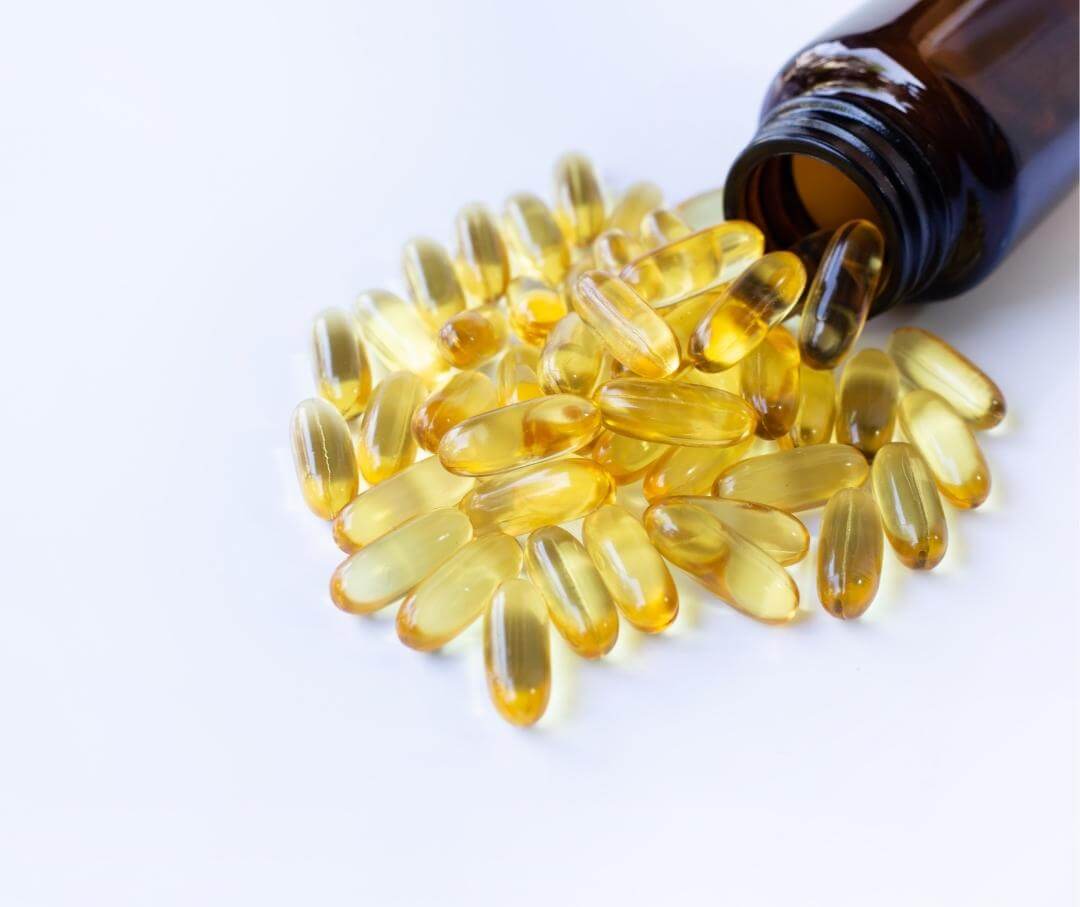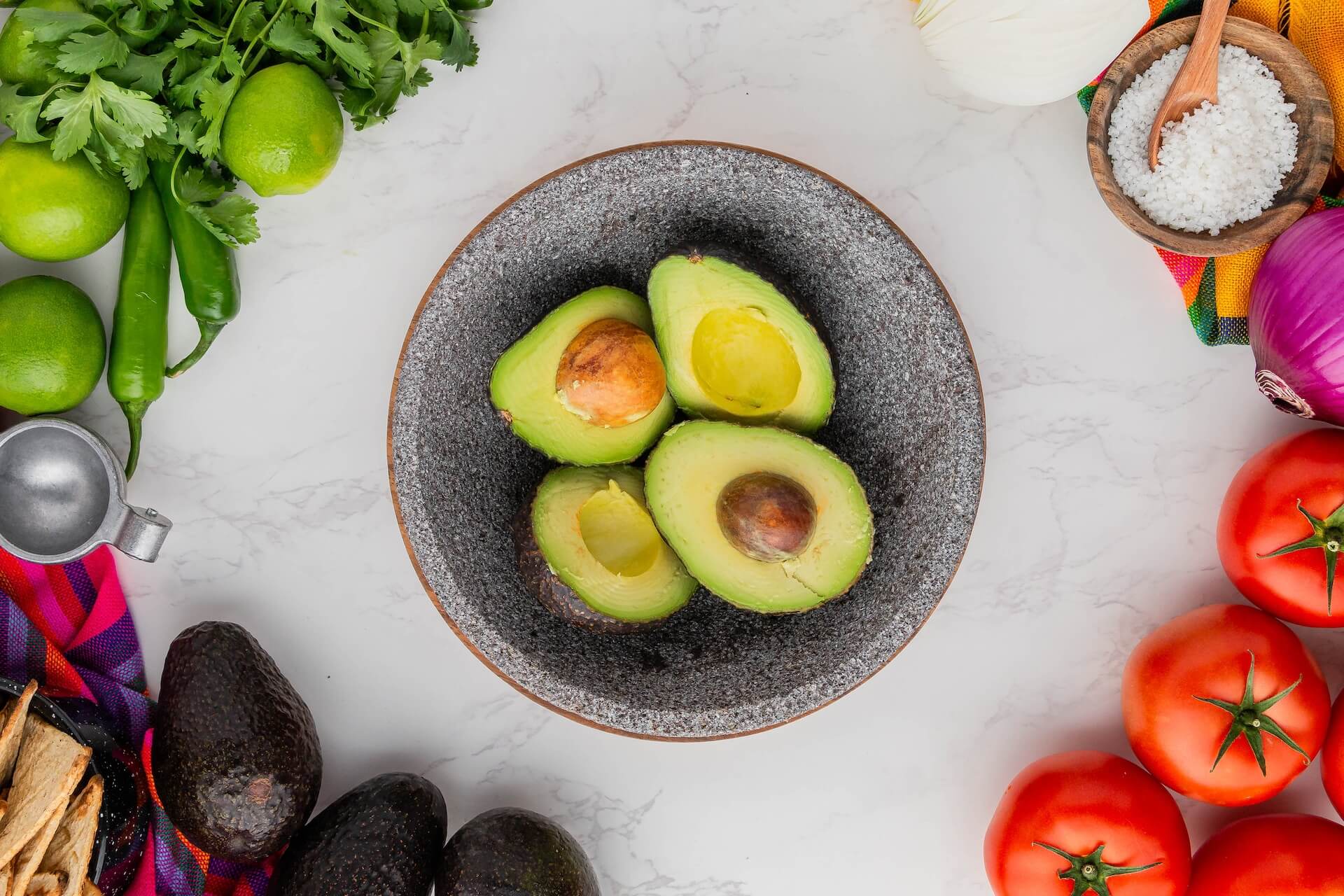Superfoods, known for their nutrient-dense qualities, are packed with high concentrations of vitamins, minerals, antioxidants, and more. Typically, superfoods are plant-based options or nutrient-packed animal sources of foods that provide more nutrition than the average food in one’s diet.
When it comes to weight loss, including more superfoods can support your body composition goals by making sure that you are taking in enough fuel in the form of energy and added nutrients. During weight loss, we are often eating less than our norm, and this can mean that our nutrition has some gaps. Superfoods can help us fill those holes while allowing us to stick to a calorie deficit.
{{mid-cta}}
What Are Superfoods?
Chock full of nutrients, superfoods bring a slew of health benefits. Nutrients in superfoods might be vitamins, minerals, antioxidants, fatty acids, or other unique compounds that you can’t find in everyday foods. Often, superfoods have a number of these beneficial components, making them more nutritious and nutrient-dense.
Superfoods contain more than one important nutrient, making them a “total package” for our health and well-being.
The health benefits of superfoods include
- Lowering cancer or heart disease risk or improving the immune system
- Supporting immune health through increased antioxidant consumption and anti-inflammatory properties
- Containing omega-3 fatty acids, often found in fatty fish and compounds in blueberries and dark leafy greens, that may support cognitive function and protect against age-related cognitive decline
- Superfoods high in fiber, protein, and other nutrients have a lower impact on blood sugar levels, making them suitable for individuals managing obesity and diabetes, or those concerned about blood sugar levels
<p class="pro-tip"><strong>Also Read: </strong><a href="black-beans-benefits">Benefits of Black Beans: A Superfood to Include in Your Diet</a>.</p>
Top 22 Superfoods to Burn Belly Fat and Lose Weight

Harness the potential of nutrient-packed superfoods while you’re focused on fat loss. These foods not only deliver essential vitamins and minerals but also boast unique qualities that may support you in your weight loss efforts. From metabolism-boosting fruits to fiber-rich grains and antioxidant-rich spices, explore these nutritional powerhouses as your allies in achieving a leaner physique.
Superfoods contribute to weight loss as they are often a good source of filling macronutrients like protein, rich in fiber, and chock full of added nutrients to help you feel fueled and energized. If weight management is your goal, consider adding these into your routine for success.
1. Salmon
Fatty fish such as salmon, mackerel, and sardines are rich in omega-3 fatty acids, which are beneficial for heart health, joint health, and brain health. Consider sourcing your salmon from Alaska, where it is guaranteed to be wild-caught and a nutritious source of omega-3s.
2. Avocado
A source of monounsaturated fats, fiber, and vitamin E, avocado is a nutrition powerhouse that is a great source of heart-healthy fats and digestion-promoting fiber. The fat in avocado will also help you absorb fat-soluble nutrients like vitamins A, D, E, and K.
3. Chia Seeds
Another source of omega-3 fatty acids, fiber, and protein, chia seeds are a small but mighty addition to meals.
4. Berries
Blueberries, strawberries, raspberries, and blackberries are rich in antioxidants, vitamins, and fiber. Blueberries, in particular, have a reputation for being an excellent source of fiber and an antioxidant called anthocyanins. They may even support cognitive health long-term.
5. Green Tea
Packed with antioxidants and a compound named EGCG, this potent tea has potential impacts on body fat burning. Green tea has been connected to various health benefits, from weight loss to brain health.
6. Chickpeas
Chickpeas are rich in fiber, a good source of plant-based protein, and chock full of essential vitamins and minerals such as folate, iron, phosphorus, and manganese. Also known as garbanzo beans, chickpeas have health-promoting benefits from digestive health to blood sugar management.
7. Leafy Greens
The deep green hue of leafy greens is indicative of nutrient-rich properties. Spinach, kale, Swiss chard, and other leafy greens are high in vitamins, minerals, and antioxidants. Leafy greens also contain high levels of magnesium, fiber, and vitamin K all of which work synergistically for our health and wellbeing.
8. Eggs
Eggs are packed with essential nutrients, including B vitamins and vitamins A, D, and E, minerals like iron, zinc, phosphorus, and antioxidants like lutein and zeaxanthin, which are beneficial for eye health. Eggs are also an excellent source of choline, an important nutrient for brain health, fetal development during pregnancy, and liver function; you’ll be hard-pressed to find a good source of choline in many other foods.
9. Broccoli
Broccoli is a cruciferous vegetable that is rich in vitamins C and K, fiber, and antioxidants. Like other cruciferous veggies, it is also is rich in sulfur compounds that promote the body’s ability to detox.
10. Bell Peppers
Due to their rich vitamin and antioxidant content, bell peppers are an excellent source of vitamin C, providing immune support and skin health. They contain vitamins A and B6, fiber, and antioxidants that contribute to overall health and well-being.
11. Greek Yogurt
Protein, probiotics, and a rich nutrient profile, including calcium and B vitamins, work together to make Greek yogurt a superfood. This fermented dairy option promotes satiety, aids in digestion, and contributes to bone health.
12. Oats
The soluble fiber content in oats provides benefits for heart health, lowering cholesterol levels, and digestion. They are rich in antioxidants, vitamins, and minerals, supporting overall health. Oats also have a low glycemic index, helping to regulate blood sugar levels and contribute to sustained energy.
13. Walnuts
Walnuts are one of the few plant foods with an impressive omega-3 content. They’re also a good source of antioxidants and other essential nutrients. They contribute to heart health, may have anti-inflammatory properties, and provide beneficial fats that support brain function.
14. Oysters
Oysters, deemed a superfood for their exceptional nutrient density, are an excellent source of zinc, a crucial mineral for immune function and wound healing. Oysters also provide high-quality protein, omega-3 fatty acids, and various vitamins and minerals, contributing to heart health, brain function, and overall nutrition.
15. Seaweed
A rare source of iodine, in addition to other vitamins and minerals, seaweed varieties like nori and kelp offer a unique nutritional profile that’s hard to find in other common foods.
16. Sweet Potato
High in vitamins, especially vitamin A, and a good source of fiber, sweet potatoes are a nutritional powerhouse carb. As a lower glycemic carbohydrate, sweet potato is a wonderful blood-sugar-friendly carb to include in your meals.
17. Flaxseeds
Rich in omega-3 fatty acids, fiber, and lignans, flaxseeds can contribute to heart health, support digestive function, and have potential anti-inflammatory and antioxidant properties.
18. Dark Chocolate
The rawest form of chocolate, cacao, is high in antioxidants, flavonoids, and nutritious minerals. It is often found in raw or minimally processed forms and contains antioxidants. Dark chocolate may even have benefits for heart health in moderation.
19. Kefir
Kefir is a fermented dairy product that is a good source of protein, calcium, and probiotics, which supports gut health and good digestion. The protein in kefir keeps you full longer, and calcium helps support healthy bones.
20. Turmeric
Turmeric contains the active compound curcumin, known for its anti-inflammatory and antioxidant properties. Curcumin may have immune health-supporting properties and may be helpful for folks with joint pain or arthritis.
21. Spirulina
Recognized for its vibrant blue color, this powerhouse form of seaweed is bursting with nutrition that is hard to find in most people’s typical diets. A blue-green algae that is high in protein, vitamins, minerals, and antioxidants, spirulina is often consumed in powdered form or as a supplement.
22. Quinoa
A whole grain that is high in protein, fiber, vitamins, and minerals, quinoa is a powerhouse carbohydrate that is also low on the glycemic index and blood sugar friendly.
Nutritional Benefits of Superfoods

While there is no one magical food for weight loss, including superfoods in your diet can close nutrient gaps, improve your health, and prevent disease. Here are some of the most prevalent nutrition and health benefits to including more superfoods in your diet.
- Vitamins and Minerals: The USDA Dietary Guidelines list calcium, potassium, and vitamin D as nutrients of concern. This means that most Americans do not meet the recommended amounts of these foods. Choosing superfoods could help you meet these needs more consistently.
- Antioxidants: Many superfoods are high in antioxidants, which can help neutralize free radicals in the body, potentially reducing oxidative stress and lowering the risk of chronic diseases.
- Omega-3s: Omega-3 fatty acids found in fatty fish may support cognitive function and protect against age-related cognitive decline.
- Protein: Protein, a critical nutrient for muscle growth, metabolism, and feelings of satiety or preventing cravings, is found in many superfoods like salmon, oysters, and chickpeas.
- Fiber: The daily recommendation for fiber intake is 25 g per day, and most people do not get close to meeting that goal. Many plant-based superfoods are rich in fiber and can help you accomplish this nutrition target.
Explore How to Incorporate Foods Into Your Diet to Reach Your Health Goals
Signos incorporates cutting-edge research and the proven power of continuous glucose monitoring to help you lose weight and reach your health goals. Not sure if Signos is right for you? Take this quiz to find out! Interested in learning more about nutrition and healthy eating habits? Check out more articles on our blog.
<p class="pro-tip"><strong>Learn More: </strong><a href="vegan-recipes-for-weight-loss">15 Delicious & Healthy Vegan Recipes for Weight Loss</a>.</p>
- Item 1
- Item 2
- item 3
Topics discussed in this article:
References
- Cobos Á, Díaz O. 'Superfoods': Reliability of the Information for Consumers Available on the Web. Foods. 2023 Jan 26;12(3):546.
- Barsby JP, Cowley JM, Leemaqz SY, Grieger JA, McKeating DR, Perkins AV, Bastian SEP, Burton RA, Bianco-Miotto T. Nutritional properties of selected superfood extracts and their potential health benefits. PeerJ. 2021 Nov 26;9:e12525.
- StatPearls. Omega-3 Fatty Acids. Accessed 1/17/2024.
- Dreher ML, Davenport AJ. Hass avocado composition and potential health effects. Crit Rev Food Sci Nutr. 2013;53(7):738-50.
- Vahapoglu B, Erskine E, Gultekin Subasi B, Capanoglu E. Recent Studies on Berry Bioactives and Their Health-Promoting Roles. Molecules. 2021 Dec 24;27(1):108.
- Bonyadi N, Dolatkhah N, Salekzamani Y, Hashemian M. Effect of berry-based supplements and foods on cognitive function: a systematic review. Sci Rep. 2022 Feb 25;12(1):3239.
- Chacko SM, Thambi PT, Kuttan R, Nishigaki I. Beneficial effects of green tea: a literature review. Chin Med. 2010 Apr 6;5:13.
- Wallace TC, Murray R, Zelman KM. The Nutritional Value and Health Benefits of Chickpeas and Hummus. Nutrients. 2016 Nov 29;8(12):766.
- USDA Agricultural Research Service. Dark Green Leafy Vegetables. Accessed 1/17/23.
- Kuang H, Yang F, Zhang Y, Wang T, Chen G. The Impact of Egg Nutrient Composition and Its Consumption on Cholesterol Homeostasis. Cholesterol. 2018 Aug 23;2018:6303810.
- Puglisi MJ, Fernandez ML. The Health Benefits of Egg Protein. Nutrients. 2022 Jul 15;14(14):2904.
- Syed RU, Moni SS, Break MKB, Khojali WMA, Jafar M, Alshammari MD, Abdelsalam K, Taymour S, Alreshidi KSM, Elhassan Taha MM, Mohan S. Broccoli: A Multi-Faceted Vegetable for Health: An In-Depth Review of Its Nutritional Attributes, Antimicrobial Abilities, and Anti-inflammatory Properties. Antibiotics. 2023 Jul 7;12(7):1157.
- Chávez-Mendoza C, Sanchez E, Muñoz-Marquez E, Sida-Arreola JP, Flores-Cordova MA. Bioactive Compounds and Antioxidant Activity in Different Grafted Varieties of Bell Pepper. Antioxidants. 2015 Jun 23;4(2):427-46.
- FoodData Central. Plain, greek yogurt. Accessed 1/17/2024.
- Moon J, Koh G. Clinical Evidence and Mechanisms of High-Protein Diet-Induced Weight Loss. J Obes Metab Syndr. 2020 Sep 30;29(3):166-173.
- Cormick G, Belizán JM. Calcium Intake and Health. Nutrients. 2019 Jul 15;11(7):1606.
- Paudel D, Dhungana B, Caffe M, Krishnan P. A Review of Health-Beneficial Properties of Oats. Foods. 2021 Oct 26;10(11):2591.
- Chauhan A, Chauhan V. Beneficial Effects of Walnuts on Cognition and Brain Health. Nutrients. 2020 Feb 20;12(2):550.
- Spence LA, Henschel B, Li R, Tekwe CD, Thiagarajah K. Adding Walnuts to the Usual Diet Can Improve Diet Quality in the United States: Diet Modeling Study Based on NHANES 2015-2018. Nutrients. 2023 Jan 4;15(2):258.
- FoodData Central. Oysters, raw. Accessed 1/17/2024.
- Lomartire S, Marques JC, Gonçalves AMM. An Overview to the Health Benefits of Seaweeds Consumption. Mar Drugs. 2021 Jun 15;19(6):341.
- Samanta S, Sarkar T, Chakraborty R, Rebezov M, Shariati MA, Thiruvengadam M, Rengasamy KRR. Dark chocolate: An overview of its biological activity, processing, and fortification approaches. Curr Res Food Sci. 2022 Oct 15;5:1916-1943.
- Farag MA, Jomaa SA, El-Wahed AA, El-Seedi AHR. The Many Faces of Kefir Fermented Dairy Products: Quality Characteristics, Flavour Chemistry, Nutritional Value, Health Benefits, and Safety. Nutrients. 2020 Jan 28;12(2):346.
- Hewlings SJ, Kalman DS. Curcumin: A Review of Its Effects on Human Health. Foods. 2017 Oct 22;6(10):92.
- FoodData Central. Spirulina, seaweed. Accessed 1/17/2024.
- Naeini F, Zarezadeh M, Mohiti S, Tutunchi H, Ebrahimi Mamaghani M, Ostadrahimi A. Spirulina supplementation as an adjuvant therapy in enhancement of antioxidant capacity: a systematic review and meta-analysis of controlled clinical trials. Int J Clin Pract. 2021;75(10):e14618.
- Pathan S, Siddiqui RA. Nutritional Composition and Bioactive Components in Quinoa (Chenopodium quinoa Willd.) Greens: A Review. Nutrients. 2022 Jan 27;14(3):558.


.jpg)





























